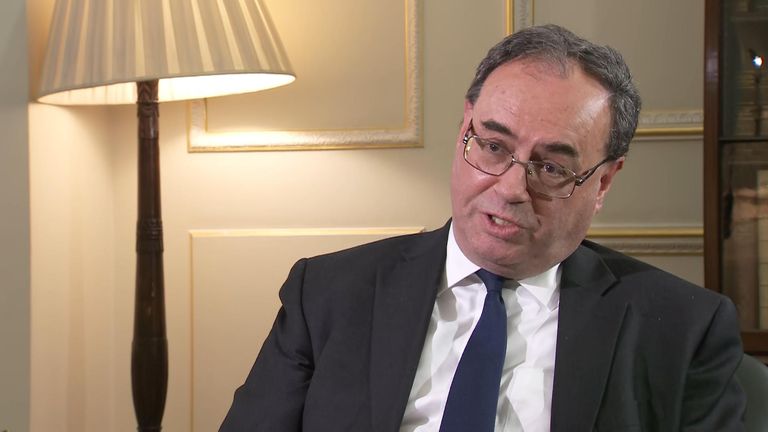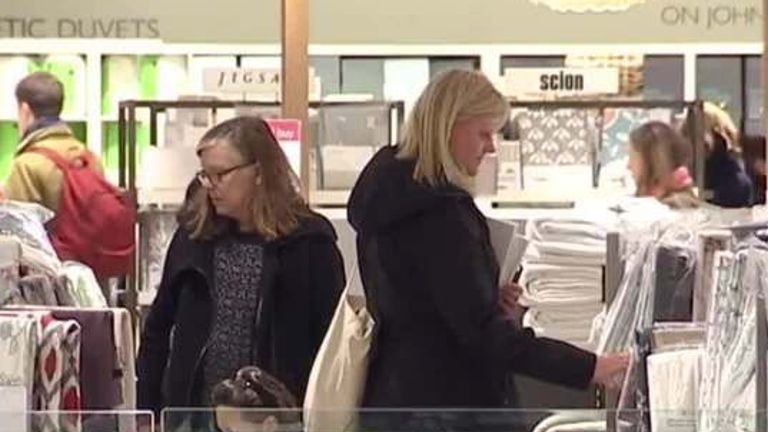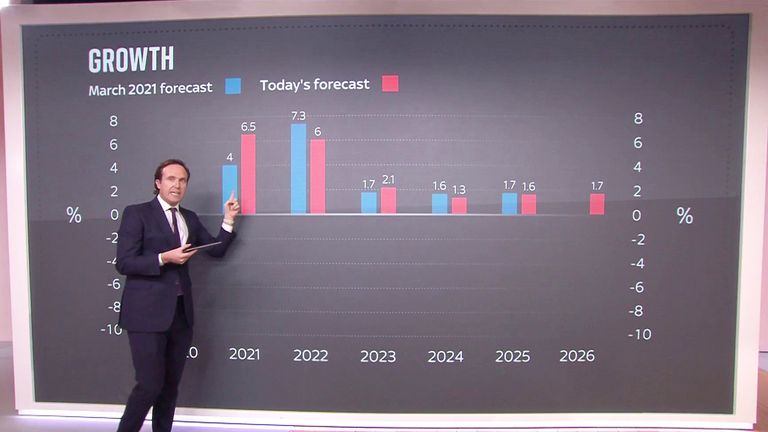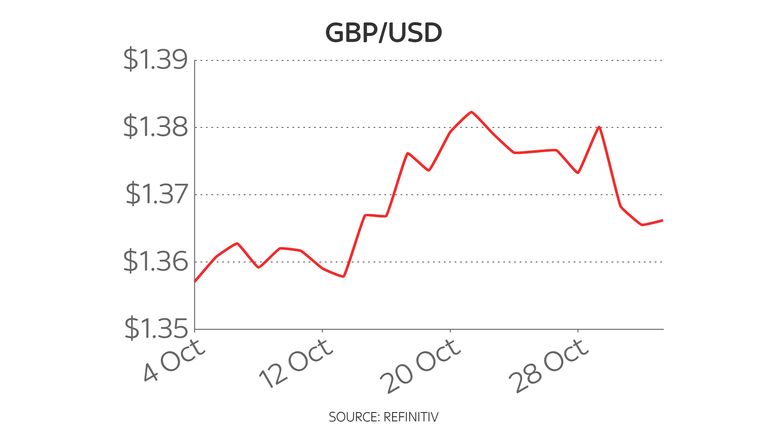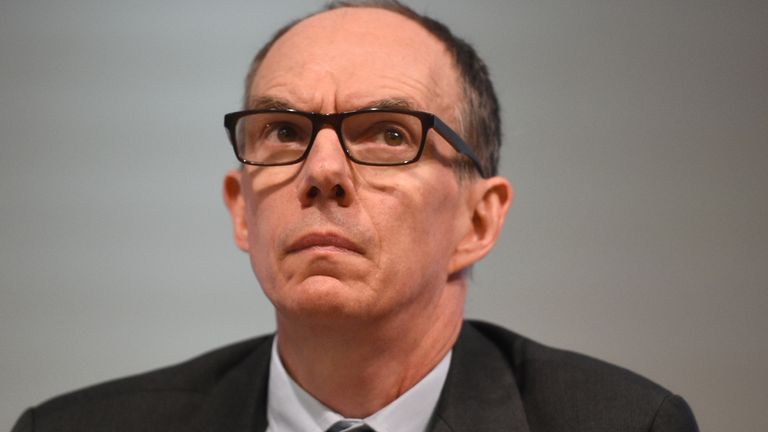Why a modest rate hike still looks likely – but is not a foregone conclusion
The last time the Bank of England raised interest rates, Theresa May was prime minister, Jeremy Corbyn was leader of the opposition, Britain was still in the EU and coronavirus was a term known only to virologists.
This week, however, the bank’s monetary policy committee (MPC) may raise – albeit very fractionally – its key policy rate.
In response to COVID-19, the MPC cut Bank Rate from 0.75% to 0.25% on 11 March last year, cutting it to the all-time low of 0.1% eight days later. There it has remained.
Even two weeks ago, most economists were confident that this week would see a modest increase taking Bank Rate back up to 0.25%, following strong hints from Andrew Bailey, the bank’s governor, along with comments from other members of the MPC.
Money markets – specifically sterling futures contracts – began to price in a rate rise.
Since then, however, doubts have been started to creep in.
Recent data concerning the economy has been mixed.
And, while Rishi Sunak’s budget signalled a huge expansion in government spending, there were few giveaways – which merely confirmed that tax increases are going to suck billions of pounds from businesses and consumers during the next 12 months.
Some economists have questioned whether, under those circumstances, the bank would really want to depress demand further at a time when the post-COVID recovery appears to be stalling.
Added to that is the ongoing crisis in the household energy supply market.
Some 18 household suppliers have gone bust since the start of September, affecting more than two million household customers, including five this week alone.
Many of those customers will be finding themselves on higher-charging tariffs than they were before.
Doubts about a hike have shown up most clearly in the foreign exchange markets.
Since 20 October, when money markets began to decisively price in a rate rise this week, the pound has fallen from $1.3834 to $1.3603 on Tuesday – a drop of 1.7% in just nine trading days.
As a result, the MPC’s decision is the most finely-balanced for many years.
Those arguing in favour of bank rate remaining unchanged include the MPC’s uber-doves, Catherine Mann and Silvana Tenreyro.
They continue to insist that the recent rise in inflation is “transitory”, in the jargon, a product of supply chain bottlenecks created by both Brexit and COVID at a time when consumers, who built up huge savings during the three lockdowns, are ready to splash their cash.
Their argument is that raising bank rate at this moment in time is unnecessary as the current inflation being seen will unwind over coming months.
Some City economists have sympathy with this view.
Martin Beck, chief economic advisor to the EY ITEM Club, said: “Given the growing cost of living pressures faced by households from higher inflation, rising energy bills and forthcoming tax rises, raising interest rates now could exacerbate pressures and risk knocking confidence – and the recovery – off course.”
Ranged against the doves are the hawks, such as Sir Dave Ramsden – one of the bank’s deputy governors – and Michael Saunders, who argue that the inflationary pressure building up in the economy now threatens to become more consistent unless the MPC takes early action.
They argue that inflation expectations, something the Bank watches exceptionally closely, are already starting to rise.
Once that happens, the logical next step would be a rash of demands for higher pay, leading to more inflation as employers passed on the cost of higher wages to their customers.
Tightness in the labour market points to a stronger chance of wage inflation taking off than at any point in the last decade.
As Gurpreet Gill, macro strategist for Global Fixed Income at the fund manager Goldman Sachs Asset Management, puts it: “High job vacancies suggest the labour market is tight and supportive of higher wage growth, while hours worked and labour force participation suggest there is significant spare capacity.
“Further, a collapse in immigration due to both Brexit and the pandemic could result in a longer-term constraint on labour supply in the UK relative to other economies.”
The grim experience of both the UK and the US in the late 1970s and early 1980s showed that, once the inflationary genie is out of the bottle, it is a long and painful process putting it back in.
Those calling for a modest tightening this week argue that doing so many prevent more painful increases in the cost of borrowing down the line.
They also argue that the MPC has little to lose by raising bank rate now.
A rate at 0.25% – which the market expects the MPC to go to – will, in all practicality, feel pretty similar to 0.1%.
They can also point out that, with some 74% of mortgage borrowers on fixed rate deals, comparatively few homeowners would suffer an immediate impact from interest rate rises.
In particular, the vast number of recent first-time buyers – potentially the most to lose from a rise in interest rates – would be insulated, since 96% of mortgages taken out since 2019 were done so on a fixed rate deal.
The greatest concern that the hawks on the MPC may have, though, is this.
The bank has built up its inflation-fighting credentials through a lot of hard work since it was given operational independence 24 years ago.
Failing to act now, should inflation prove to be more than temporary, risks damaging that credibility.
Allan Monks, chief European economist at JP Morgan, warned that, should the bank keep its main policy rate unchanged, there will also be a personal risk for Mr Bailey himself.
He said: “If the Bank of England instead chooses to hold rates, investors will rightly ask why the governor decided to talk up the prospect of higher rates for this year when expectations were already high.”
There is a further alternative to either raising bank rate or leaving it unchanged.
The bank still has some £20bn worth of asset purchases to complete following the resumption of quantitative easing as the pandemic took hold.
It could just decide not to go ahead with that – which would amount to a very modest form of monetary tightening.
So, which way will the bank go? Most economists believe a slight hike is likely.
Sanjay Raja, senior UK economist at Deutsche Bank, said: “We expect a 6-3 vote tally in favour of a rate hike with the majority of the MPC leaning on risk management considerations to guard against a potentially more persistent inflation overshoot.
“But we see a non-negligible risk that a lift-off may be delayed to December.”
The economics team at Bank of America told clients: “The market almost fully prices in a hike because of hawkish talk from governor Bailey. There must be a high bar to Bailey disappointing now.
“Extra stimulus in last week’s Budget could nudge wavering MPC members to hike.
“However, we do not believe a hike in November is completely a foregone conclusion. Most notably, [the bank’s] chief economist Huw Pill on 21 October seemed to try and talk down expectations.”
There is one last factor that may push the MPC to raise bank rate. It is this: 0.1% was an emergency rate. The UK is no longer in the crisis it was in March last year.
The MPC should acknowledge that with a modest rise in interest rates.
